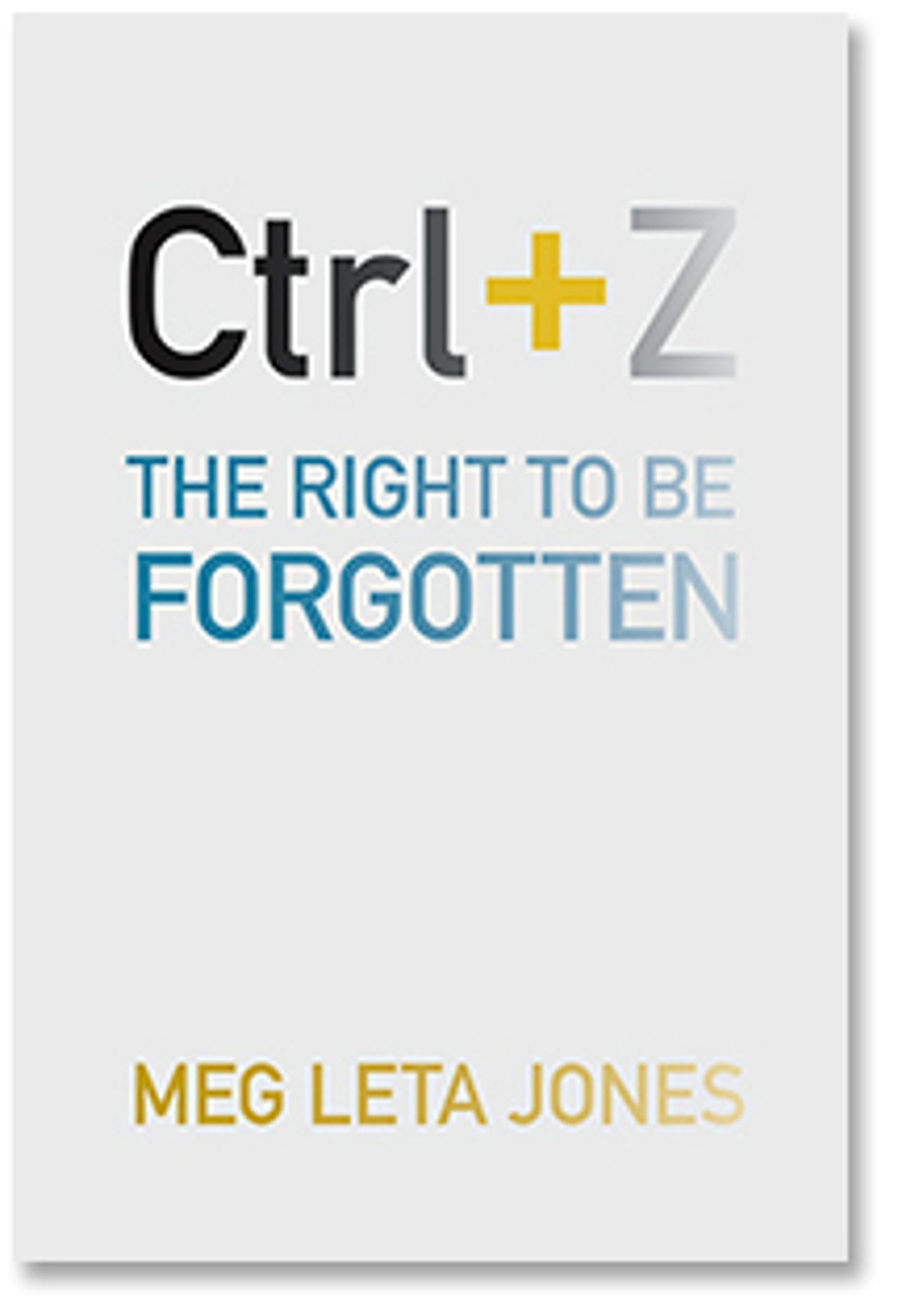Ctrl+Z, book review: Free speech versus privacy in the digital age


Ctrl Z: The Right to Be Forgotten • By Meg Leta Jones • NYU Press • 267 pages • ISBN: 978-1-4798-8170-3 • $29.95
Americans have an uneasy relationship with the 'right to be forgotten', or more accurately, the right to deletion. This was first (I believe) suggested by Viktor Mayer-Schönberger, and then reinforced in Google Spain v AEPD and Mario Costeja González, in which the Court of Justice of the European Union ruled that search engines are responsible for the personal data they process. As a result, they must consider requests from individuals to delete links to particular pages bearing personal information about them.
At the 2014 Computers, Freedom, and Privacy conference, the law professor Judith Rauhofer made a case that the right to be forgotten is really a rebalancing of the power between large companies and the individual: surely, she argued, Americans of all people should appreciate the importance of being able to reinvent oneself. The free speech fundamentalists present weren't having it. They have not warmed to it any more since then, and the right is incorporated into the EU's now-passed General Data Protection Regulation, due to come into force in 2018.
Meg Leta (Ambrose) Jones, an assistant professor at Georgetown University, is one of the more interesting observers of the web and the persistence of its content. In 2014, for example, she studied the half-life of web pages, finding that only about 10 to 15 percent of web content persists for longer than a year. In Ctrl+Z: The Right to Be Forgotten, she explores the Costeja judgement, its legal consequences, and the difficulty of balancing the twin human rights of privacy and freedom of expression.
Many American commentators continue to fret about the damage to the integrity of history in the face of internet deletions -- although since the recent Presidential election, many are also fretting about fake news that doesn't get deleted. However, Jones points out that content is deleted from the web all the time. The most common reason is copyright enforcement under the Digital Millennium Copyright Act, which has not been amended despite the well-documented chilling effects. Jones goes on to analyse the interplay between freedom of speech rights under the First Amendment and privacy law, teasing out the differences between the US and the EU. The 'public interest' in particular is defined differently: people who become public figures in the US remain so; in the EU, time may return them to private citizen status.
This international interplay is especially important when considering the question of whether deletions from Google's search results should be constrained to the portal of the individual's country. This has become increasingly contentious: earlier this year, Google appealed against a ruling by the French data protection authority requiring the search company to delist such results from all its portals and not just google.fr. Jones argues that geoblocking would provide a better-balanced solution.
All of this matters because the battles over international jurisdiction continue to grow. Both the US and the UK (in the Investigatory Powers Act) grant their intelligence agencies the right to demand access to content anywhere in the world. Microsoft continues to fight a US court case over releasing email stored on its Irish servers -- should Irish law or US law take precedence? The right to be forgotten is another such nexus, and Jones provides a much-needed measured analysis.
Read more book reviews